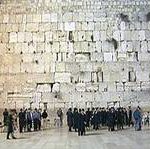By Marlena Tanya Muchnick
Instalment #2
Comments welcome. Please email: [email protected]
Shalom Aleichem! This month’s discussion is on forgiveness. It is one of the core values of Judaism, just as it is in the LDS faith.
What good would repentance be without forgiveness? What is forgiveness? It’s reciprocal, isn’t it? It involves 2 or more people, or one person and Heavenly Father. Jewish law mandates that if someone has hurt you and sincerely asks for your forgiveness, you must forgive him with a complete heart and a willing spirit. Because of the human tendency to hold on to our resentments, there is a special reward for one who freely forgives. Talmud tells us: “For the person who overcomes his natural tendencies and instead forgives, all of his sins are forgiven.”
The Hebrew word for forgiveness is “mechila” . Now it needs to be made clear that Jews do not believe in paying a penance. Sins are confessed privately, in prayer, between a person and God. The concept and practice of paying a penance – an act of devotion or self-mortification voluntarily performed to show sorrow for a wrongdoing – was practiced by Jews during the Middle Ages – the 5th through the 15th centuries in Europe – but largely through Christian and Catholic influences.
Jews also do not believe in confessing sin to a religious figure. They do not believe there is a designated figure in addition to or in place of God; that is, Heavenly Father. Sins between persons require the asking and granting of forgiveness by those parties concerned. Judaism also does not recognize the need for reconciliation as a necessary part of the process of sin and repentance. Although the releasing of all negative feelings is to be hoped and sought for, in Judaism it is not an absolute requirement.
In Judaism it is taught that there is no authority in addition to or in place of Heavenly Father who can grant us absolution from our sins. Rather, asking and granting of pardon by the parties involved is required. What does sinfulness do and why is forgiveness by man and by God necessary? One answer is that it disrupts our lives and distorts our relationships with others and with God at the same time! It is too much to bear.
What if someone actually insults us or causes us harm? The Talmud states: “Those who are insulted but do not insult back, hear themselves slandered but don’t respond, act with love and rejoice in tribulations — of these Scripture states that ‘Those who love Him are like the sun rising with all its might’”! The righteous person will refrain from taking any action, and not escalate the dispute; but it is permissible to remember the incident and maintain cool relations until the other party asks forgiveness.
But is there more than one kind of forgiveness? Yes, of course, and the most basic is mechila from the offended person. In response to the idea that mechila ought to be granted only if deserved is an easy “no”. It is core to the Jewish view of forgiveness, just as desisting from sin is core to the Jewish view of repentance. Mechila is given to forgive indebtedness, to relinquish a claim. It does not involve the heart. It can be compared to a pardon. The crime remains. The debt is forgiven. But – the offender MUST be sincere in his repentance and feel remorse, must abstain from recommitting the act, have made restitution and actually confessed to the act. Then the offended is morally bound to forgive.
The second kind of forgiveness is called selicha. It is an act of the heart. It is reaching a deeper understanding of the sinner and achieving an empathy for the trouble of the other. It can be compared to an act of mercy rather than an act of grace.
The final kind of forgiveness is called “atonement”. The Hebrew word is “kappara”. It is also called a purification and the word is “tahora”. This is a total wiping away of all sinfulness, an existential cleaning out. Kappara is only granted by God, for no human can atone for the sins of another or purify the spiritual pollution of another.
On a subject closely allied subject – revenge – Torah teaches that we must never take vengeance or bear grudges against the members of our nation; we must love our neighbors as ourselves. (Lev 19:18). It is unethical to slander or denigrate others if there is any kind of vindictive motive. Kindness is a major obligation in Jewish culture. We have to forgive and forget.
Mormons embrace these doctrines in another way. They believe that forgiveness is itself an act of God. In the pardoning an offender or offense, it is important to God that mankind forgive one another. When mankind receives forgiveness from God it is made possible only through the Atonement. Jews do not believe in Christ so they cannot understand the atonement or how it is necessary to relieve grievous sin, but they do have alternate ways of symbolically (1) cleansing themselves and (2) asking and expecting God to forgive their trespasses each year during Yom Kippur services, held in September.
Heavenly Father desires us to repent –
D&C 138:19 “ And there he apreached to them the everlasting bgospel, the doctrine of the cresurrection and the redemption of mankind from the dfall, and from individual sins on conditions of erepentance. “
And when one obtains pardon from God it is total. It is like taking something that is red and cleansing it until it is white as snow. The Savior, Jesus Christ, taught that if an individual is unwilling to forgive other people, that individual will not be forgiven. See Matthew 6:15, 3NE 13:14.
Now there are sins that cannot be forgiven by mankind. These are: denying the Holy Ghost and committing murder, the taking of an innocent life. An individual who murders after entering into the New and Everlasting Covenant – the fullness of the Gospel – and unlawfully taking another life – will fail to have his name written in the Lamb’s Book of Life (D&C132:13).
A bishop once told me that when I was angry with someone I should write the offense on a piece of paper and with full purpose of heart say: I forgive you, ____, for _____. If there are many offenses, write each down and then forgive each offense. Do this in prayer and then ask Heavenly Father to pardon your faults and to strengthen your charity of heart. This is what the Atonement of Christ is for.
That is all there is to it. If the offended is willing to sincerely do this, his or her heart will be light and free of the pain of accusations, hurt feelings and the like. He partakes of the Atonement. The offender can accept the pardon or not, as chosen. He can know of it or not. Don’t worry about that; just cleanse yourself so you can again be spiritually free. Jeshua, the Hebrew name of Jesus – means to make free. Let his atonement for you make you free by freeing yourself of unwanted feelings of hurt – choose to be happy with no burdens to carry – so you can concentrate on making others happy!
But wait – what if we don’t want to forgive? What are our reasons for holding resentment within our hearts and minds? One person told me that forgiving someone for some sort of wrongdoing or personality trait that irritates another means that offender is being let off the hook – no longer responsible for doing harm or suspected harm. Only if we keep the memory can that person continue to be held accountable, I was told.
But that isn’t true, first because one cannot in righteousness judge another’s way of being without understanding and mercy. Secondly, the feelings of the accuser are harmful and limiting to THAT person, regardless of the supposed offender, who has to deal with his/her own problems in a personal way. That is a personal matter. And third, because only Deity is perfect, ALL persons have repenting to do and forgiveness to extend, one to another. This is the crux of the Gospel of Jesus Christ and the teachings of all prophets since Adam. Forgiving gives the sinner a chance to repent, to know himself, to adjust, change, or not. It remains for the accuser to relent, to commiserate if necessary, to put all energy into doing the Lord’s will in forgiving “seventy times seven”. If not, God holds him or her accountable until forgiveness is made. This in no way repeals the crime or injustice, it only sets each free from the other, so that life can continue in peace and happiness. If we pardon each other immediately, think how much happier all of us will be…
Sholom and may the peace of Christ be with you always.
Marlena Tanya Muchnick
www.peopleofthebook-judaica.com
http://comeuntochrist.blogspot.com, http://judaicaworld.blogspot.com
http://judaicaworld.wordpress.com


